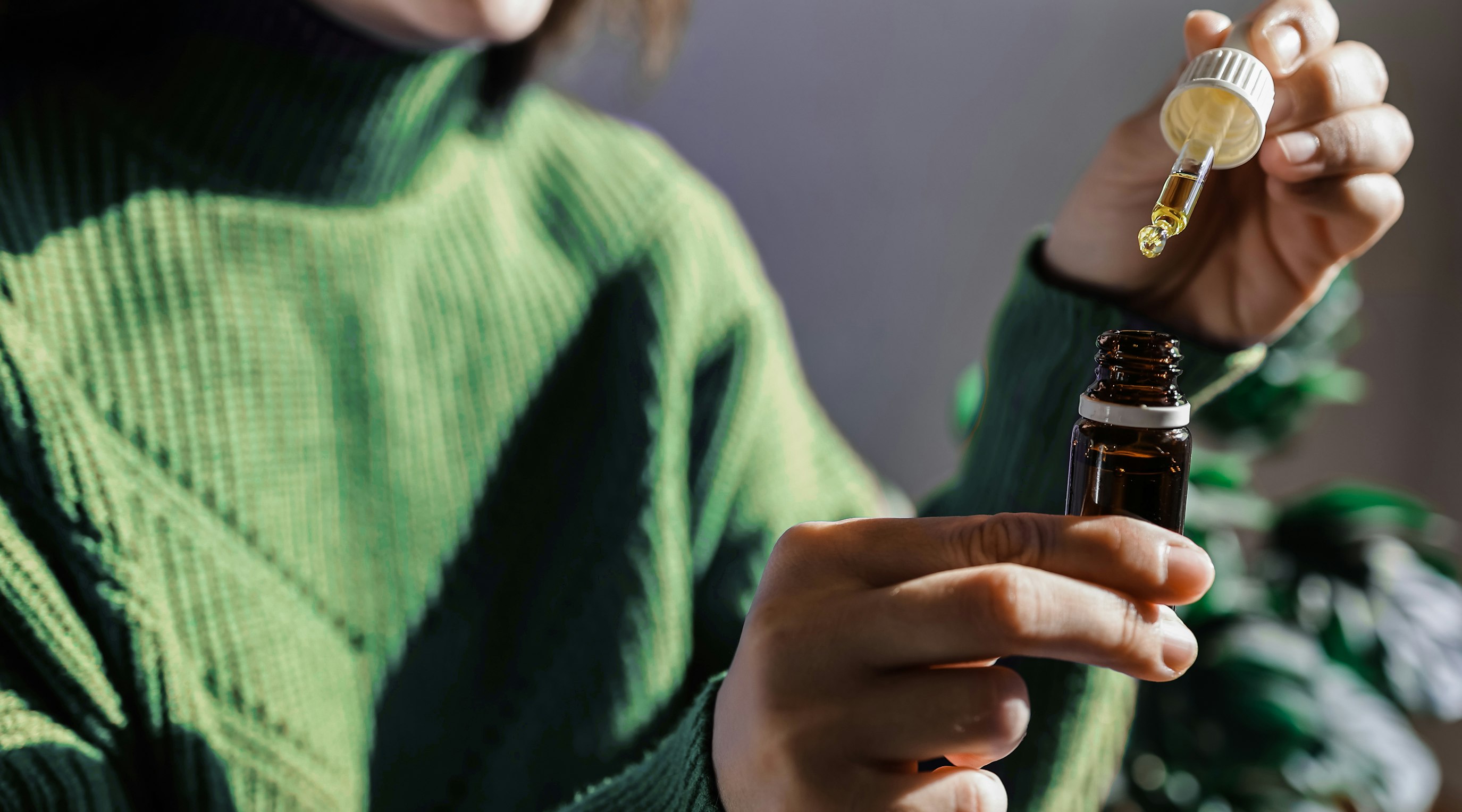A comparison of advertised versus actual cannabidiol (CBD) content of oils, aqueous tinctures, e-liquids and drinks purchased in the UK
7 min read
Editorial Team
Contents
Research Report URL: https://www.ncbi.nlm.nih.gov/pmc/articles/PMC10339496/
Because we are passionate about making medical cannabis knowledge accessible, we break down some of the latest and greatest medical cannabis research reports and scientific investigations into bite-sized chunks.
Here we provide summarised findings of the evidence that was discovered and discussed in the 2023 paper ‘A comparison of advertised versus actual cannabidiol (CBD) content of oils, aqueous tinctures, e-liquids and drinks purchased in the UK’.
But before we get into the actual paper, first, let's quickly recap the rules when it comes to THC and CBD in the UK:
Understanding UK CBD Law
In the UK, by law only products that contain less than 1mg of THC per product container can be sold over the counter in high street or in online stores.
However, since 2018, GMC registered doctors, like those working at Releaf, have been able to prescribe medical cannabis to patients they believe may be able to benefit from these options. The medical cannabis flowers and medical cannabis oils prescribed by Releaf contain varying levels of THC and CBD and are all sourced from GMP compliant facilities.
Our doctors personalise each treatment plan to the individual, by selecting specific products and determining dosages to best meet their symptoms, be it chronic pain or inflammation, poor sleep or low mood.
To find out more, head over to our How it Works page, or assess your eligibility today.
Abstract summary:
This study aims to address concerns about the quality of CBD products and the discrepancies between advertised and actual CBD concentrations. By comparing the advertised CBD content in oils, aqueous tinctures, e-liquids and drinks sold in the UK with their actual cannabidiol contents, this paper reveals how much these figures deviate and emphasise the importance of maintaining standard operating procedures.
What are the contributions of this paper?`
This paper contributes evidence that shows how inaccurate the advertising of certain CBD products can be in the UK. It assesses the CBD concentrations in a broader range of products than has previously been examined within the UK, and aims to address concerns about the quality of CBD products and the discrepancies between advertised and actual CBD concentrations.
What are the practical implications of this paper?
There are a number of practical implications discussed in this paper, including:
The over-labelling of CBD concentrations within UK products highlights the need for improved product standards, which may necessitate clearer legislative guidance on the acceptable tolerance limits for advertised CBD concentrations.
The study found that the magnitude of deviation from advertised CBD concentrations differed between product types was not related to product price, and BD-oils deviated less from their advertised concentrations than aqueous tinctures, e-liquids, and drinks.
The findings suggest that consumers should be cautious when purchasing CBD products and should look for products that have been independently tested for CBD content.
Introduction summary:
The introduction of this paper provides an overview of the growing consumer demand for CBD-containing products, which are now available in various forms, including oils, aqueous tinctures, e-liquids, drinks, edibles, and topical creams/gels. However, concerns have been raised regarding the quality of these products, with discrepancies between advertised and actual CBD content, and contamination with other, illicit cannabinoids.
The paper aims to address these concerns by assessing CBD concentrations in a broader range of products than has previously been examined within the UK, including oil-and aqueous-based tinctures, e-liquids, and drinks.
Literature survey:
The paper provides a literature survey of previous studies that have examined the quality of CBD-containing products. The authors note that previous studies have found discrepancies between advertised and actual CBD content, with some products containing little to no CBD, while others contain higher levels of CBD than advertised. Additionally, some products have been found to be contaminated with other cannabinoids, such as THC, which can have psychoactive effects.
The authors also note that there is limited information on how different types of CBD products may differ in their deviation from advertised CBD concentrations. Therefore, the current study aims to address this gap in the literature by quantifying and comparing CBD concentrations in different types of products.
Methods used in this paper:
The authors used high-performance liquid chromatography (HPLC) with a Raptor ARC-18 LC reverse phase column and ultraviolet detection to quantify CBD and cannabidiolic acid (CBDA) concentrations in aqueous tinctures, oils, e-liquids, and drinks. Reported CBD concentrations using HPLC reflect the combination of measured CBD and theoretic conversion of CBDA to CBD.
The authors also compared the advertised CBD concentrations to the actual CBD concentrations in each product and analysed the data to determine if there was a relationship between product type, price, and deviation from advertised CBD concentration.
Conclusions from the paper:
The paper concludes that there is a need for improved product standards and clearer legislative guidance on acceptable tolerance limits for advertised CBD concentrations due to the over-labelling of CBD concentrations within UK products.
The magnitude of deviation from advertised CBD concentrations differed between product types but was not related to product price, with CBD-oils deviating less than aqueous tinctures, e-liquids, and drinks.
In this area, future research may seek to determine rates of CBD degradation in consumer products, and within-product variability in labelling accuracy. Furthermore, CBD used in research investigating its psychological or physiological effects should be analysed to confirm that CBD concentrations are appropriate.
Limitations of this study:
The limitations of this paper include:
- The study only tested a limited number of products and brands, which may not be representative of all CBD-containing products available in the UK market.
- The study did not investigate the stability of CBD over time, which could affect the accuracy of the measured CBD concentrations.
- The study did not investigate the potential effects of other cannabinoids or contaminants in the products, which could impact the safety and efficacy of the products.
- The study did not investigate the potential effects of different administration routes or dosages of CBD on its psychological or physiological effects.
- The study did not investigate the potential effects of different extraction methods or sources of CBD on the accuracy of the measured CBD concentrations.
- The study did not investigate the potential effects of different storage conditions or packaging materials on the stability of CBD in the products.
Future works suggested in this study:
Future research suggested in this paper includes:
- Determining rates of CBD degradation in consumer products.
- Investigating within-product variability in labelling accuracy.
- Analysing CBD used in research investigating its psychological or physiological effects to confirm that CBD concentrations are appropriate.
Share article
Did you like this article?
It is important to seek medical advice before starting any new treatments. The patient advisors at Releaf are available to provide expert advice and support. Alternatively, click here to book a consultation with one of our specialist doctors.
Elevate your wellness with medical cannabis
Get comprehensive care, convenience, and confidence with an all-in-one treatment plan.
Am I eligible?Authors
Editorial Team
Article written by the Releaf Editorial Team, a group of seasoned experts in cannabis healthcare, dedicated to enhancing awareness and accessibility in the field through their wealth of knowledge and experience.
fact checked
Editorial Policy
All of our articles are written by medical cannabis experts, guided by strict sourcing guidelines, and reference peer-reviewed studies and credible academic research. Our expert clinical team and compliance specialists provide valuable insights to ensure accuracy when required. Learn more in our editorial policy.
Need more help?











